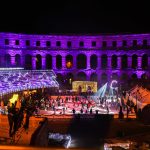Experiential travel or experiential tourism is the global movement in the tourism industry, especially in its higher echelons, in its luxury segments.
Tourists that seek travel experiences rather than traditional resort vacations, therefore prefer to be called travelers, rather than tourists. Ideally, they would like to be described as travelers on a journey of immersion into unknown cultures, gastronomies, languages, relationships and landscapes. Also, they do not consider themselves to be luxury travelers, but affluent travelers, as their money is spent on personal bettering, not wasted on material products meant to show status and show their riches. It is rather thought-provoking really, because these ideas have been elevated to something akin to a religious movement.
The first time I started thinking about this phenomenon in this particular way was when I read “Sapiens”, by Yuval Noah Harari, a remarkable Israeli historian and philosopher. Harari posits that there are factual truths about the world that exist regardless of our understanding of them, our subjective truths and intersubjective truths, also known as narratives that exist within a group of people.
One of those narratives says that in order to make the most out of their human potential, people should travel around the world, experiencing that world, taking in as much as possible. Believers in this intersubjective truth are “the true believers in the myth of romantic consumerism”, according to Harari. The romantic part of it is obvious, as is the consumerist.
Romanticism lies in the notion that we must undertake certain, very often unknown and unfamiliar, actions and happily plunge ourselves into the slew of new experiences in order to appreciate the life and to gain the understanding of the world. The consumerist part lies in the idea that we must earn enough money and spend it on such experiences in order to achieve the same goal. It is a circle, but a circle of betterment, and not material betterment but a psychological one, at least that is what those believing in this myth would have you believe.

On the other hand, it seems that this myth has a real-life implication. Recent psychological research conducted by prestigious Cornell University showed that such behaviour, one hallmarked by experiential rather than material purchases, does indeed make one a better person. Better is here meant in terms of sense of gratitude and generosity which in turns propels one’s social behavior.
To make it even more fascinating the results showed that those people have a further positive effect on those around them, and those effects ripple through the society like a pebble in the water. These feelings of gratitude and the practices of generosity that often follow also have positive effects on the general health. So it seems then that the positive effects of the betterment through experience actually leads not only to the more satisfying life in terms of psychological balance and happiness, but in improvements in general health, and that is rather an extraordinary finding.
While I am not a big fan of the religionisation of any ideas, let alone the travel and tourism industry, the idea that spending less on material goods and more on the experiences, which in turn makes people more generous and grateful, and prosocial and leads to an increased general health does seem as something not to argue with. Especially bearing in mind that I am one of those considered to be in the business of creating unique and non-replicable experiences. So, experience on!









